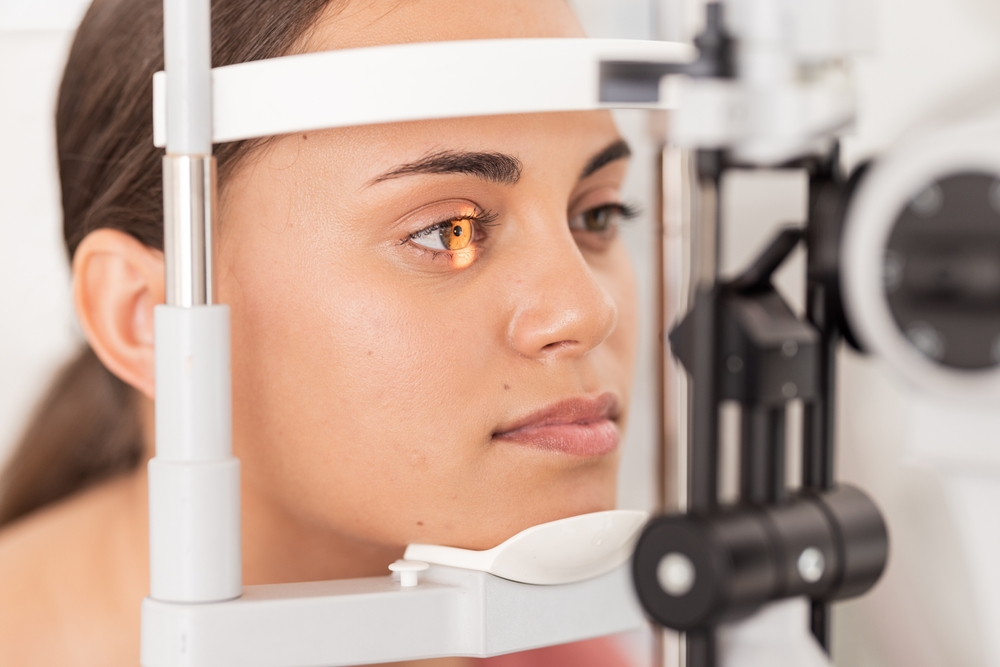
Introduction
A few weeks ago, I had the privilege of examining a patient who hadn't had an eye exam in over four decades. What we discovered during the examination not only surprised her but underscored the crucial role regular eye exams play in our overall health.
Carmen, (not her real name) wore reading glasses and had no concerns about her eyes. She thought she would have a quick vision check and be on her way with a script for glasses. Little did she know that this routine eye exam would reveal important information about her ocular and overall health.
Vision check
Checking Carmen’s vision was first on the list. I found a new prescription that would give her better vision than the drugstore readers she wears. This was only the beginning of the exam and there was a lot to uncover as I started to check the health of her eyes.
High Eye Pressure and High Blood Pressure
During the examination, I detected elevated eye pressure. This condition, if left untreated, could damage her vision. Carmen, surprised by this revelation, also disclosed that she had high blood pressure but was not taking any medication for it. While high eye pressure and high blood pressure are not related to each other, they can both cause permanent damage to vision.
I referred Carmen to a specialist who will perform several tests to determine whether her eye pressure should be treated. They will use very precise measurements to discover any signs of damage to her eyes.
Carmen admitted that her primary care doctor has been recommending blood pressure medication for a long time but she has been reluctant. We discussed the consequences of unregulated blood pressure on her vision and her overall health. Carmen mentioned that she would like to get back to the gym. Exercise can lower blood pressure so I encouraged her to follow through on her resolution. I also emphasized the importance of follow up with her doctor.
Cataracts and Night Vision
My clinical exam revealed the presence of mild cataracts, which decrease night vision. Carmen was taken aback by this finding, but she admitted that her vision at night was not as good as it used to be. While we can’t reverse this condition, several lifestyle changes could slow the growth of cataracts and hopefully delay the need for surgery.
One factor that causes cataracts to grow more quickly is smoking. Carmen stated that she smokes several cigarettes every day. She would like to quit, but she just hasn’t done it yet. Knowing that smoking is increasing the growth of cataracts gave her a fresh resolve to kick the habit.
Dry Eyes and Lifestyle Choices
Another surprise was Carmen’s struggle with dry eyes. She didn’t mention it at first because it is a normal part of her life. When I asked directly, she realized that yes, her eyes felt dry. This common condition often goes unnoticed but can significantly affect daily life.
When I looked at her eyes in the microscope, I could see the cause of her symptoms. I recommended a treatment she can start immediately. Dry eyes often cause blurry vision, so both her symptoms and her vision should improve with this treatment.
Empowering Change:
What made this exam truly inspiring was Carmen’s response. Armed with information about the impact of her lifestyle on her eyes, she expressed a desire to make positive changes. She was ready to start exercising and quit smoking. She also wanted to get in contact with her primary care doctor and follow their recommendations for lowering her blood pressure.
Follow up
Two weeks after Carmen’s eye exam, I called her to check on her progress. Carmen said that she started part of her dry eye treatment and her eyes have started to feel better. I encouraged her to implement the full treatment as that will provide even greater benefits. Carmen also said that she started walking regularly and her blood pressure has decreased 10 points!
During our conversation, Carmen said that she had not heard from the specialist who will monitor her eye pressure. After ending the call, I immediately called the specialist and reminded them that Carmen is a patient who needs their help. They promised to get in touch with her to schedule an appointment.
The story of Carmen serves as a poignant reminder of the importance of regular eye exams. Beyond checking visual acuity, these exams act as a gateway to understanding overall health. Let's prioritize our eyesight, recognizing it as a vital indicator of our well-being. With informed decisions and proactive care, we can all look forward to a future with clearer vision and better health.











